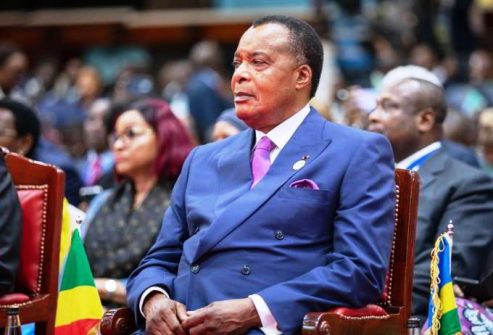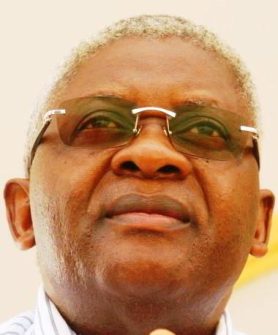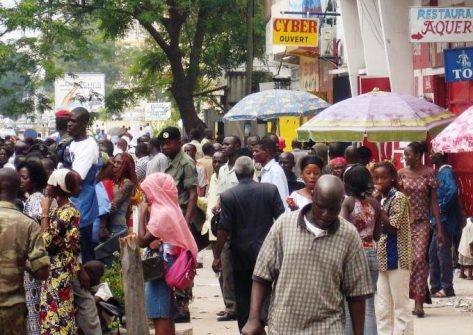Republic of Congo. A script already seen.

President Sassou-Nguesso has been in power for approximately 40 years. Four decades in which no genuine path of development has been created, but which have served to annihilate the opposition. A few months before the presidential elections, the path seems to be already marked out.
With 2026, an election year, the news in Congo continues to be dominated by politics. It must first be noted that the electoral campaign has already begun without being officially declared open, nor having entered the period foreseen by the voting calendar. In the capital, Brazzaville, and in the interior of the country, political actors, as well as militants and supporters of the ruling party, the Congolese Labour Party (PCT), and other allied political forces, contribute daily to creating the atmosphere of an electoral campaign.Regarding the incumbent president, Denis Sassou-Nguesso, all indications suggest he will seek re-election in 2026 for another five-year term, as he did in 2021. In major Congolese cities, posters, banners, and other promotional media are revived with messages supporting the unshakeable president. The same trend appears to be occurring in state media.

President Denis Sassou-Nguesso of the Republic of Congo. Courtesy, Congolese Pres. Office.
The government’s efforts are primarily aimed at this goal: to re-elect the current leader, who is still regarded as the president of the Central Committee of the ruling party. Each member of the government positions themselves in their own territory and acts as a campaign manager. In this fierce contest, significant divisions within the president’s inner circle are evident. These disagreements ultimately reaffirm Sassou-Nguesso’s unique ability to unify his otherwise fractured followers. Some are already urging him to run, occasionally calling him “the patriarch” or “the natural candidate”. To the average citizen, the country’s leader is seen as the tireless builder whose work must never cease, the sole helmsman of the Congo ship. However, the achievements of those who have held power for over forty years (1979-1992; 1997 to the present) are far from impressive. Even the year 2024, proclaimed “The Year of Youth” with promises of thousands of jobs for young people, has yet to produce significant progress. Instead, it has become another series of slogans, just like in 2013 and 2014, which focused on education. These initiatives have failed to revitalise the national education system, which has been in ruins for nearly three decades.
Invisible opposition.
Unfortunately, the opposition in the country today appears to be tired, to say the least, no more than a facade. For many, it practically no longer exists. The current system has managed to silence it or, worse, almost align it with the government’s cause.

Pascal Tsaty-Mabiala, head of the largest opposition party, the Pan-African Union for Social Democracy (UPADS). It is an opposition that is no more than a façade. Facebook
Its current leader, Pascal Tsaty-Mabiala, head of the largest opposition party, the Pan-African Union for Social Democracy (UPADS), founded by the first elected president in the country’s history, Pascal Lissouba, does not seem to be a real voice opposing the demands of power. As a formal representative of the opposition, he has a status similar to that of a minister, and within his own party, he is considered an unreliable quick-change artist. Since the death of Guy-Brice Parfait Kolélas, founder of the Udh-Yuki and son of the legendary Congolese oppositionist Bernard Bakana Kolelas, who died during the 2021 presidential elections, the country’s opposition has been left virtually without a notable leader. This benefits the regime, which pulls the strings. It should be noted that the defeated candidate in the 2016 presidential election, General Jean-Marie Michel Mokoko, is still in prison for having declared himself the winner in that year’s vote. A former adviser to the president and then his rival at the polls, the soldier was sentenced last year to 20 years in prison on charges of “having undermined the internal security of the state”.
The path of development leads to a dead end.
If we shift from political news to assess the results achieved by the Sassou-Nguesso administration, it’s evident that the country remains a vast construction site. Concerning public or social policies, words significantly outweigh facts. People feel abandoned and sometimes lack essentials such as medical care, school desks, electricity, drinking water, or fuel. The cost of living rises daily, yet public employees continue to receive their usual salaries. According to the World Bank, nearly half of the just over six million Congolese live below the poverty line.

According to the World Bank, nearly half of the just over six million Congolese live below the poverty line. File swm
The National Development Plan 2022-2026 struggles to provide reassurance, given the government’s poor performance and the failure to set clear priorities. There are fears that this initiative will suffer the same fate as the Congo émergent en 2025 (Congo: Emerging Country in 2025) programme promised to Congolese for this year, but which is now no longer mentioned in official speeches. The issue has also vanished from public debate. While the people call for reduced state costs, the executive does nothing but increase expenditure. The newly reorganised government remains too large. Above all, ordinary citizens are frustrated by the vast gap between their purchasing power and their inability to meet their families’ essential needs, contrasted with the extravagant lifestyle of an apparently greedy and insensitive elite. (Open Photo: Congolese flag brush stroke grunge background. iStock/khvost)
Thomas Julien Bouembou



